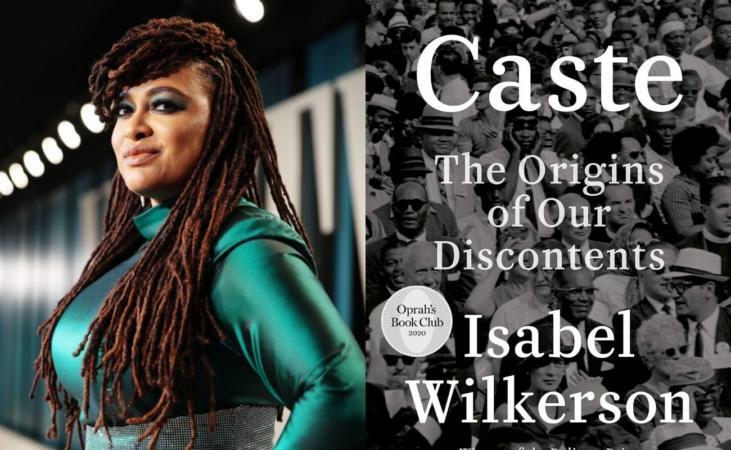Ava DuVernay has set her latest project at Netflix! She will direct, write and produce a film adaptation of the New York Times bestseller and Oprah’s Book Club selection, Caste: The Origins of Our Discontents by Pulitzer Prize winner Isabel Wilkerson.
The description: Through a multiple-story structure, Caste examines the unspoken system that has shaped America and chronicles how our lives today are defined by a hierarchy of human divisions dating back generations.
The film will be her next film project and her first feature at Netflix. It is a reunion of sorts with Netflix exec Tendo Nagenda, as the two worked on Disney’s A Wrinkle in Time. It extends her Netflix relationship, which includes the acclaimed documentary 13th and the acclaimed limited series When They See Us. She is also producing a limited series for Netflix based on the adolescent life of athlete and activist Colin Kaepernick entitled Colin in Black & White.
DuVernay will produce alongside Sarah Bremner and Paul Garnes of ARRAY Filmworks.
Check out an official description of the book below:
Drawing parallels between the caste systems of America, India, and Nazi Germany, Wilkerson outlines a revolutionary framework for understanding how caste plays out across civilizations, both historically and today. Backed by years of research, she identifies eight ideological pillars that underlie all caste systems. Using riveting stories from the lives of Martin Luther King Jr., baseball’s Satchel Paige, an ordinary single father and his toddler son, and many others, Wilkerson shows how the insidious undertow of caste is experienced by each of us every day. She documents how the Nazis studied the racial systems in America to plan their debasement of the Jews; she discusses why the cruel logic of caste requires that there be a bottom rung for those in the middle to measure themselves against; she writes about the surprising health costs of caste, in depression and life expectancy, and the effects of this hierarchy on our culture and politics. Finally, she points forward to ways America can move beyond the artificial and destructive separations of human divisions, toward hope in our common humanity.
Photo: Getty Images

